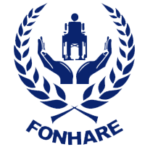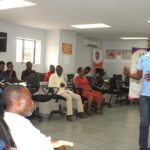Disability Inclusive Disaster Risk Reduction (DIDRR)
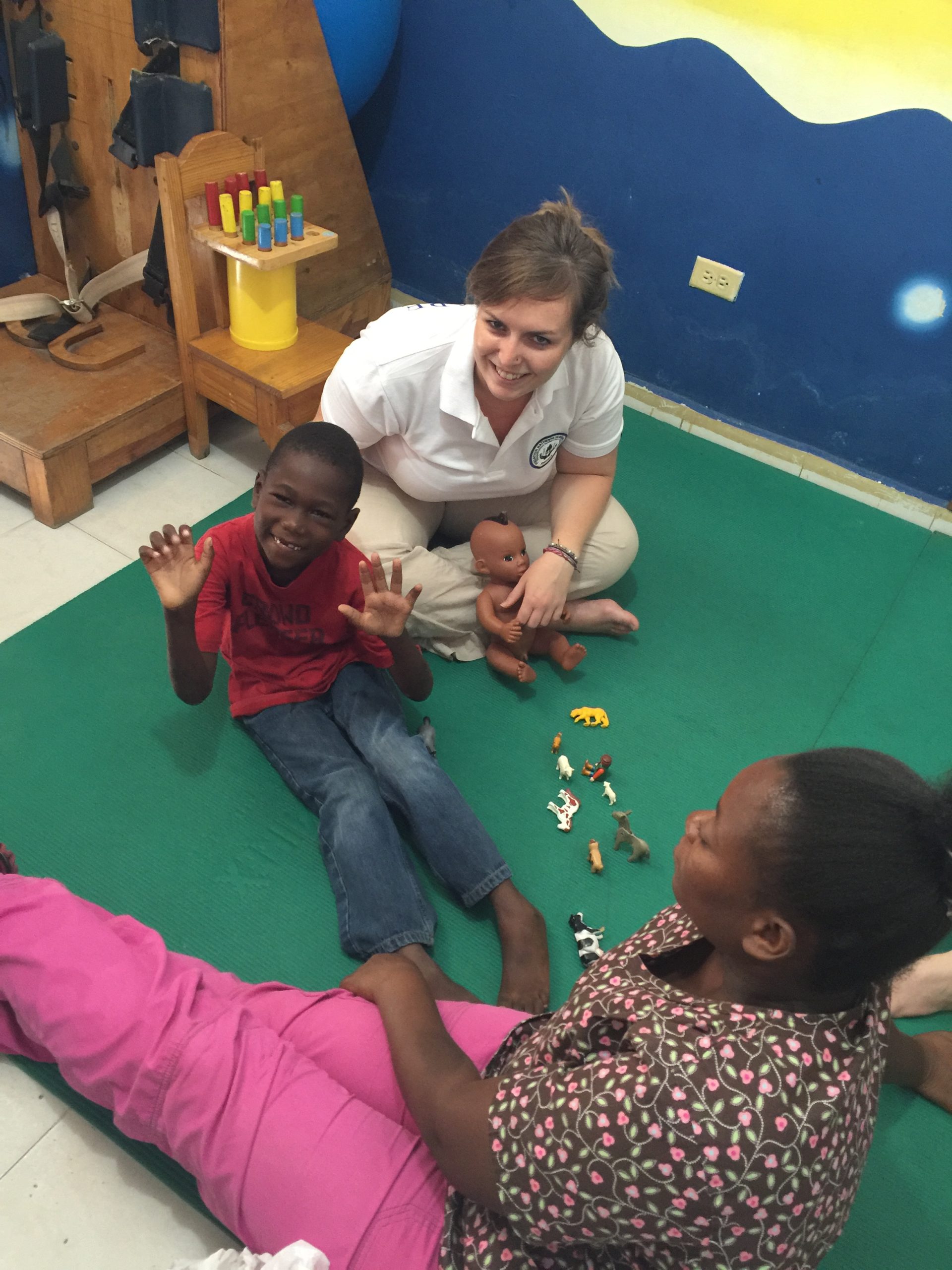
Pre / During / After disaster
Haiti is one of the countries where we can easily find all the factors that attest to a high and increasing level of risk to natural disasters, if we consider the risk according to threats (hazards) and vulnerabilities in the absence of local capacities. Given our vulnerability to natural disasters, risk and disaster management is becoming a priority in Haiti. However, the latter has never been the subject of a national policy despite the economic, social, environmental and political conditions of the country.
However, we are witnessing a terribly unfair observation. Natural disasters, earthquakes, cyclones, droughts or floods can have very different impacts from one country to another. The effects of these disasters are more dramatic in developing countries. Even within these countries, the most marginalized groups (children, pregnant women, young people, and the elderly and disabled people) are disproportionately affected. Aware of this situation, the Foundation for Haitian Rehabilitation (FOHNARE) wants to be the ambassador of vulnerable people living with disabilities within the different forums in order to advocate for the latter to be taken into account in the preparation and response to emergencies.
Aware of the critical situation in which disabled people find themselves, it is fundamental to put in place a system of good practices in order to improve inclusive care for the entire population in emergency situations. Thus, it is fundamental and essential that people living with disabilities, service providers and decision-makers acquire the skills necessary to meet the specific needs of these people during emergency situations.
To meet this requirement, FONHARE contributes to the implementation of:
• Inclusive multi-risk cards in municipalities.
• Creation of a database of disabled people in our areas of intervention.
• Review of disaster risk data collection and analysis tools.
• An inclusive early warning system at all levels.
• Development of an inclusive municipal emergency plan for DPOs.
• Make temporary shelters accessible.
• Capacity building of members of civil protection and organizations of disabled people on DIDRR.
• Production and dissemination of awareness messages on the inclusive risk and disaster management mechanism.
On this axis, FONHARE works in 6 municipalities (3 in the northeast and 3 in the north) thanks to a partnership with Christian Blind Mission.
Implemented Projects and Their Impacts
Project: “For greater participation and better support people with disabilities at all levels in risk and disaster management. Period October 2021- February 2024. Funded by: Christian Blind Mission (CBM).
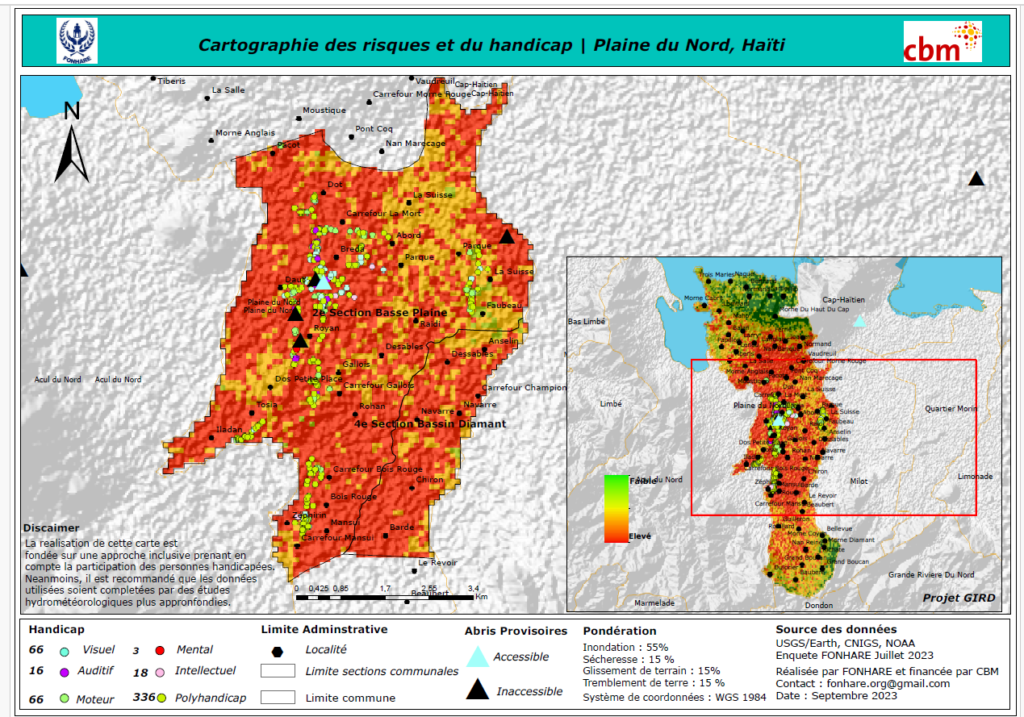
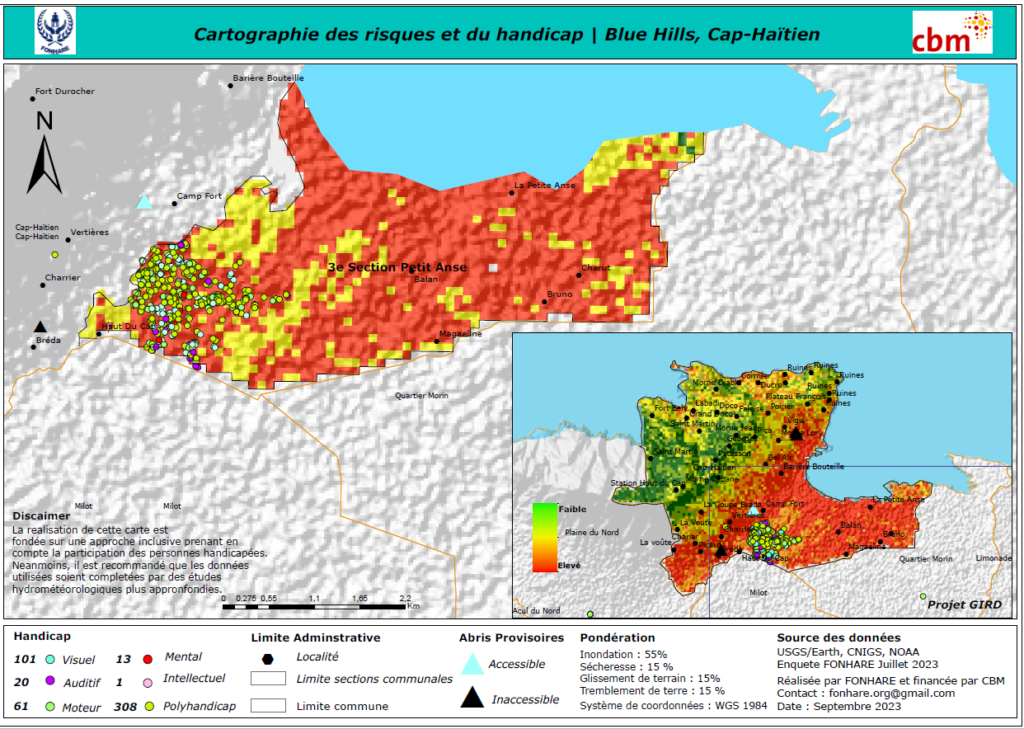
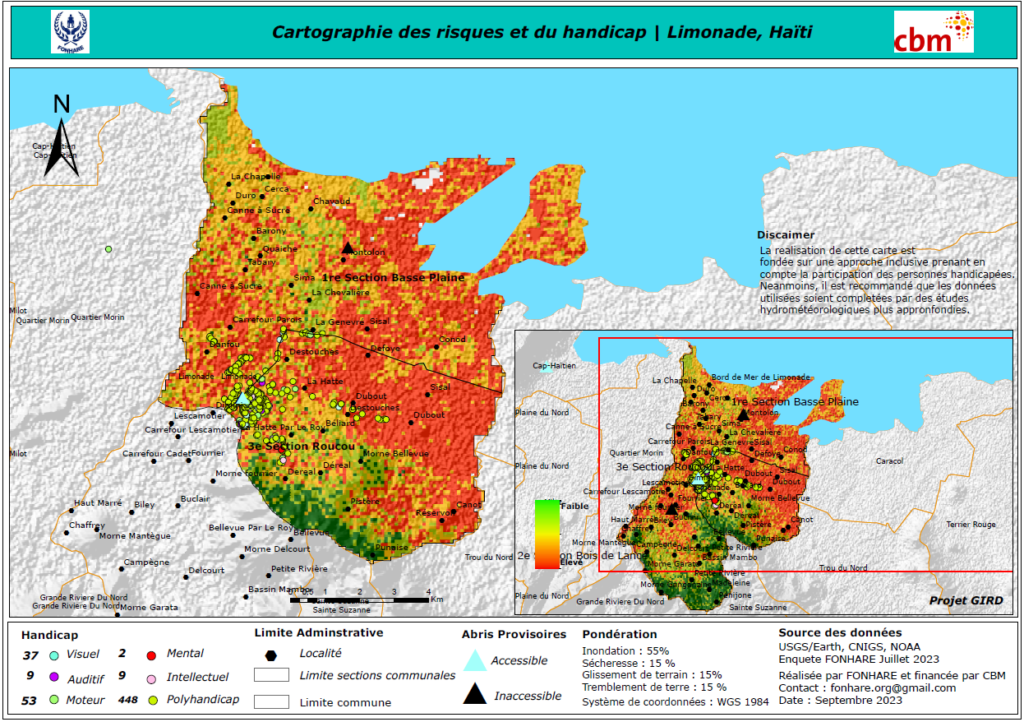
Project intervention municipalities have up-to-date inclusive multi-risk mapping as well as an inclusive risk management plan.
Project intervention municipalities have an inclusive early warning system plan and people with disabilities are integrated into the different units.
DPOs and their members have an inclusive risk and disaster management plan.
People who are members of the Departmental Directory of Civil Protection (CDPC), the Municipal Civil Protection Council, the Local Civil Protection Council and the organizations of disabled people (DPO) are trained on the inclusive management of risks and disasters.
Temporary shelters were made accessible to people with disabilities and those in charge received instruction on inclusive shelter management.
Disabled people are identified and placed on geolocated data in 6 neighborhoods most at risk of disasters in the 6 municipalities of project interventions.
